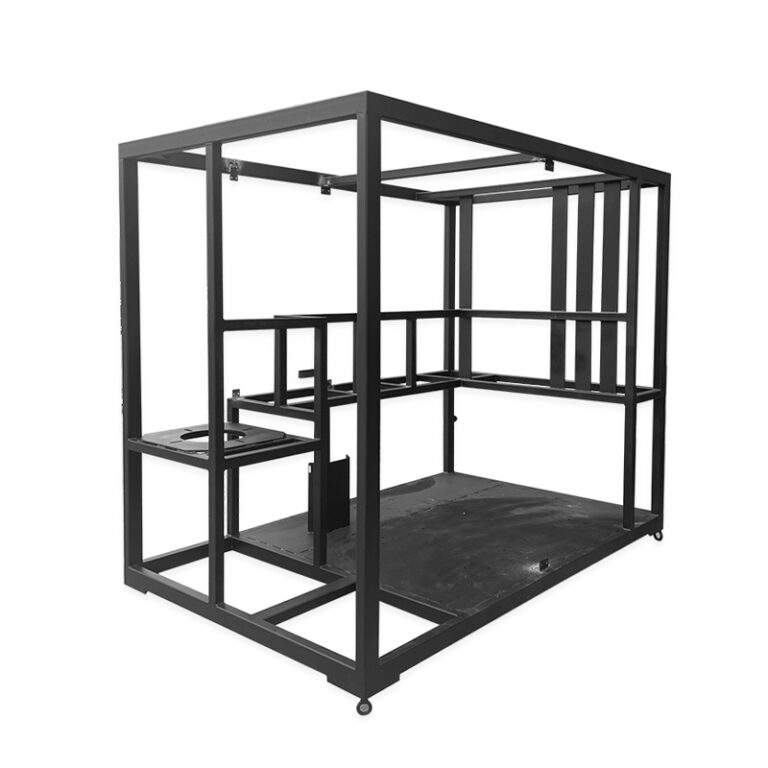The global demand for lightweight, durable, and sustainable materials continues to rise across industries. From automotive and aerospace to consumer electronics and renewable energy, aluminum has become the material of choice. At the center of this evolution is aluminum parts manufacturing, a field undergoing rapid transformation thanks to digitalization, automation, and advanced engineering techniques. Newtop Industry Group is closely following these changes and helping businesses prepare for the future.
1. The Growing Role of Digital Manufacturing
One of the most significant shifts in aluminum parts manufacturing is the integration of digital technologies. Computer-aided design (CAD), simulation software, and artificial intelligence (AI) are making it possible to create precise, high-performance aluminum components faster than ever before.
- 3D Printing and Additive Manufacturing: By using metal powders and advanced printers, manufacturers can design lightweight yet strong aluminum parts with complex geometries that were previously impossible with traditional machining.
- Digital Twins: Virtual replicas of aluminum components allow engineers to test performance under real-world conditions before production, saving costs and reducing time-to-market.
- AI-Driven Quality Control: Machine learning tools can detect micro-defects in real time, ensuring consistent quality across every batch.
These digital innovations are not just boosting efficiency but also driving a new era of design flexibility.
2. Sustainability and Green Manufacturing
Sustainability is no longer optional—it is a global mandate. Aluminum is already highly recyclable, but the future of aluminum parts manufacturing is centered around cleaner, greener practices.
- Closed-Loop Recycling: Many manufacturers are now reusing aluminum scrap directly in production, reducing both costs and carbon footprint.
- Low-Carbon Smelting: Innovations in smelting technology are lowering the energy required to extract aluminum, making the process more eco-friendly.
- Eco-Certifications: Customers increasingly prefer suppliers who can demonstrate sustainable practices, pushing manufacturers to adopt greener processes.
Newtop Industry Group is committed to supporting eco-conscious clients by ensuring sustainable sourcing and production standards.
3. Automation and Smart Factories
Automation is revolutionizing how aluminum parts are produced. Robotics and smart factory systems are streamlining everything from cutting and machining to finishing and packaging.
- Collaborative Robots (Cobots): These work alongside human technicians to handle repetitive tasks, increasing productivity while reducing workplace injuries.
- IoT Sensors: Smart sensors embedded in machines provide real-time data on temperature, pressure, and tool wear, minimizing downtime.
- Predictive Maintenance: AI-powered systems can forecast machine breakdowns before they occur, keeping production lines running smoothly.
This shift toward smart manufacturing not only reduces errors but also improves efficiency, helping businesses remain competitive in a fast-moving market.
4. Advanced Alloys and Material Science
Research into aluminum alloys is unlocking new possibilities. Stronger, lighter, and more corrosion-resistant materials are being engineered to meet the unique demands of industries.
- High-Strength Alloys: Aerospace and automotive sectors require aluminum parts that can endure extreme stress without adding weight.
- Heat-Resistant Alloys: Electronics and energy applications benefit from aluminum that performs well under high temperatures.
- Custom Blends: Tailor-made alloys allow for precise properties like enhanced conductivity or resistance to wear.
These advances are expanding the range of applications for aluminum parts and reinforcing the material’s role as a backbone of modern industry.
5. Global Supply Chain Shifts
Geopolitical factors, rising raw material costs, and supply chain disruptions are shaping the direction of aluminum parts manufacturing. Companies are responding by:
- Localizing Production: Setting up regional facilities closer to end-users to minimize shipping costs and delays.
- Diversifying Suppliers: Avoiding reliance on single sources of aluminum.
- Smart Logistics: Using AI-driven software to optimize shipping routes and inventory management.
Newtop Industry Group leverages its strong global partnerships to help clients maintain a stable and reliable supply chain.
6. Industry-Specific Applications on the Rise
Different industries are driving innovation in aluminum parts manufacturing:
- Automotive: Lightweight aluminum reduces fuel consumption in combustion vehicles and increases battery efficiency in electric cars.
- Aerospace: Complex, precision-engineered aluminum components are critical for fuel-efficient aircraft.
- Renewable Energy: Aluminum is used in solar panel frames, wind turbines, and energy storage systems.
- Consumer Electronics: Smartphones, laptops, and wearables rely on aluminum for its durability and sleek finish.
Each of these industries pushes manufacturers to innovate and adapt continuously.
7. Customization and On-Demand Manufacturing
With markets demanding faster delivery and more personalization, customization is becoming a core trend. On-demand production allows companies to order small batches of specialized aluminum parts without massive upfront investment.
This approach reduces waste, shortens lead times, and helps businesses stay agile in a highly competitive landscape.
Conclusion
The future of aluminum parts manufacturing is defined by innovation, sustainability, and adaptability. Digital tools, automation, advanced alloys, and eco-friendly practices are driving this transformation, while industry-specific demands continue to push boundaries. Newtop Industry Group remains committed to helping clients embrace these changes, offering cutting-edge solutions that align with global trends. By staying ahead of the curve, manufacturers and businesses alike can unlock the full potential of aluminum in shaping the industries of tomorrow.

